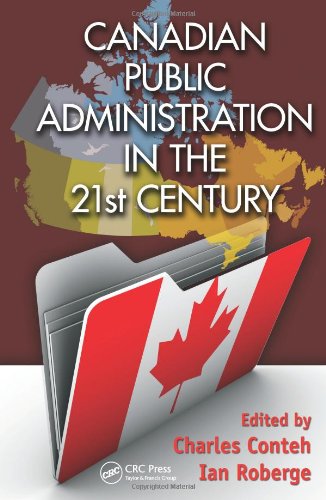

Most ebook files are in PDF format, so you can easily read them using various software such as Foxit Reader or directly on the Google Chrome browser.
Some ebook files are released by publishers in other formats such as .awz, .mobi, .epub, .fb2, etc. You may need to install specific software to read these formats on mobile/PC, such as Calibre.
Please read the tutorial at this link: https://ebookbell.com/faq
We offer FREE conversion to the popular formats you request; however, this may take some time. Therefore, right after payment, please email us, and we will try to provide the service as quickly as possible.
For some exceptional file formats or broken links (if any), please refrain from opening any disputes. Instead, email us first, and we will try to assist within a maximum of 6 hours.
EbookBell Team

5.0
58 reviewsThe demands associated with good governance and good public management are at an all-time high. Yet the discipline of Canadian public administration is in flux, and the time is ripe for an open and frank analysis of its state and possibilities. Canadian Public Administration in the 21st Century brings together emerging voices in Canadian public administration to consider current and future prospects in the discipline. A new wave of scholars has brought new energy, ambition, and perspectives to the field. In this book they take stock and build on established traditions and current trends, focusing on emerging, or reemerging, issues and challenges.
The book identifies and analyzes the emergent research agenda in public administration, focusing on Canada to illustrate key concepts, frameworks, and issues. It consists of three thematically organized sections, exploring processes, structures, and principles of Canadian public administration. It addresses the broad, emergent trend in processes of service delivery or policy implementation generally referred to as the new public governance. It then critically examines the structural and institutional dimensions of Canadian public administration in light of recent directions in the field. A complete exploration of new principles, methods, values, and ethics in Canadian public administration research and practice rounds out the coverage.
Bringing together emerging scholars, the book bridges the gap between established analytical traditions and novel theoretical and methodological approaches in the field. It proposes a new, more interdisciplinary public administration increasingly focused on governance and not solely on management.